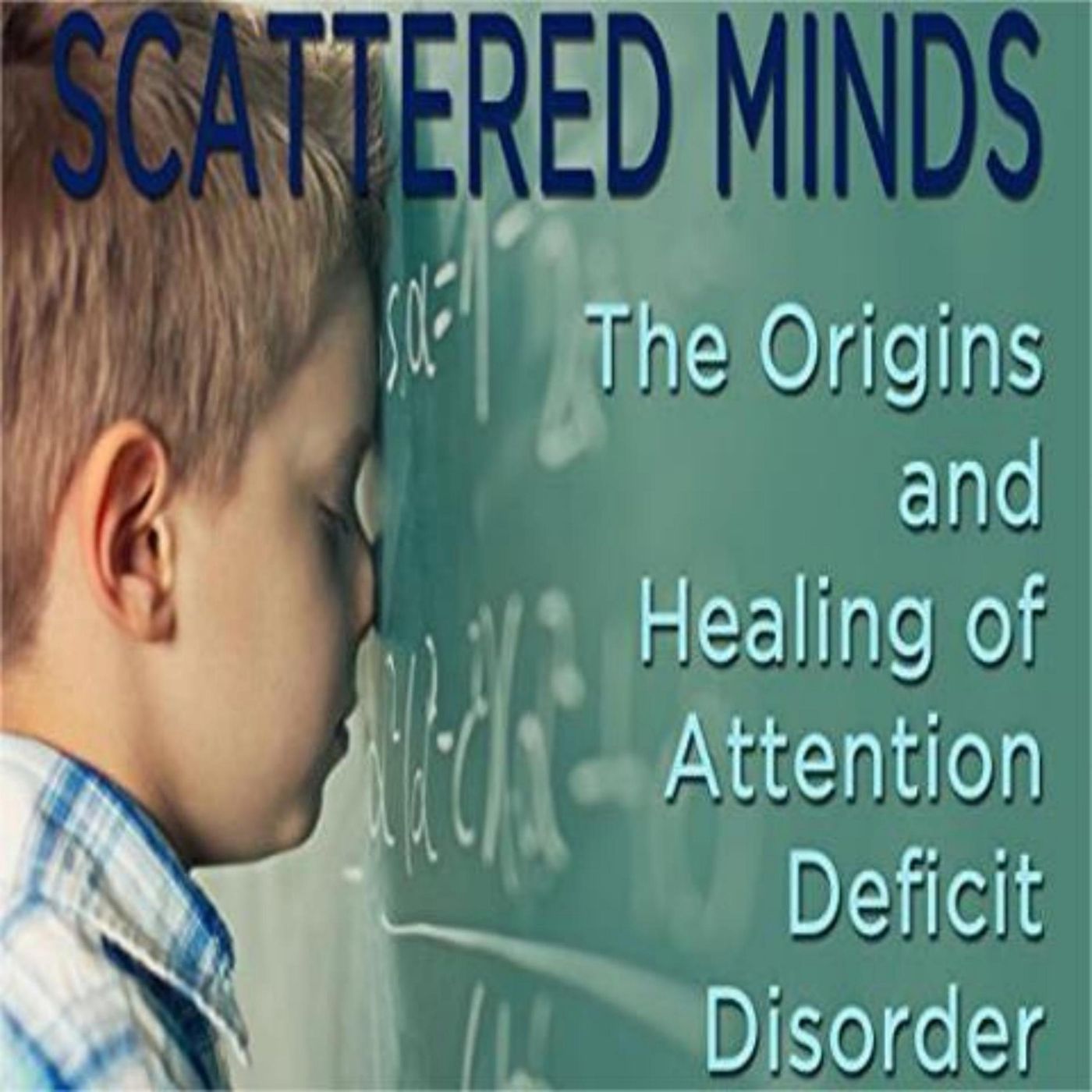
Scattered Minds: Understanding ADHD and Addiction
 2024-07-17
2024-07-17
Download
Right click and do "save link as"
Chapter 1:Summary of The Book Scattered Minds
Scattered Minds is a book by Gabor Maté that explores the effects of Attention Deficit Disorder (ADD) and its impact on individuals and society. Maté argues that ADD is not just a neurological disorder, but a response to traumatic experiences, environmental factors, and genetic predispositions. He delves into the complex interplay of genetics, brain development, and environmental influences that contribute to the development of ADD.
Maté also discusses the societal implications of ADD, such as the over-diagnosis and over-medication of individuals, as well as the stigma and lack of understanding surrounding the disorder. He emphasizes the importance of a holistic approach to treating ADD, including addressing underlying emotional issues, providing support systems, and promoting self-awareness and acceptance.
Overall, Scattered Minds offers a comprehensive and compassionate look at ADD, challenging common misconceptions and providing a new perspective on how to better understand and support individuals with the disorder.
Chapter 2:the meaning of The Book Scattered Minds
"Scattered Minds" is a book by Dr. Gabor Maté, a renowned physician and author. In this book, Dr. Maté explores the impact of attention deficit disorder (ADD) on individuals and society. He discusses how genetics, brain chemistry, and environment all play a role in the development of ADD, and offers insight into the challenges faced by individuals with this condition. Dr. Maté also examines the psychological and emotional aspects of ADD, and provides practical strategies for managing symptoms and improving quality of life. Overall, "Scattered Minds" aims to increase understanding and compassion for individuals with ADD, and offers hope for those struggling with this condition.
Chapter 3:The Book Scattered Minds chapters
Chapter 1: In the first chapter of Scattered Minds, Gabor Maté introduces the concept of Attention Deficit Disorder (ADD) and explains how individuals with this condition struggle with focusing and paying attention. He also discusses the role of genetics, environmental factors, and early childhood experiences in the development of ADD.
Chapter 2: The second chapter delves into the impact of stress on the brain and how chronic stress can affect cognitive functions such as memory, concentration, and decision-making. Maté explores the link between stress and ADD, highlighting the importance of addressing underlying emotional issues in the treatment of ADD.
Chapter 3: Maté discusses the role of upbringing and family dynamics in the development of ADD in the third chapter. He explains how parenting styles, family trauma, and attachment patterns can influence a child's ability to regulate their emotions and behavior. Maté also emphasizes the importance of creating a nurturing and supportive environment for individuals with ADD.
Chapter 4: In the fourth chapter, Maté explores the connection between addiction and ADD. He explains how individuals with ADD are more prone to developing addictive behaviors as a way of coping with their underlying emotional challenges. Maté highlights the importance of understanding the root causes of addiction and providing holistic support for individuals struggling with both ADD and addiction.
Chapter 5: The fifth chapter examines the impact of shame and self-criticism on individuals with ADD. Maté discusses how feelings of inadequacy and low self-worth can exacerbate symptoms of ADD and hinder personal growth. He advocates for compassion and self-acceptance as key components of healing for individuals with ADD.
Overall, Scattered Minds by Gabor Maté provides a comprehensive exploration of ADD and its underlying causes, emphasizing the importance of addressing emotional issues and creating a supportive environment for individuals struggling with this condition. Through personal anecdotes, scientific research, and clinical insights, Maté offers a compassionate and holistic approach to understanding and treating ADD.
Chapter 4: 10 Quotes From The Book Scattered Minds
view more
Scattered Minds is a book by Gabor Maté that explores the effects of Attention Deficit Disorder (ADD) and its impact on individuals and society. Maté argues that ADD is not just a neurological disorder, but a response to traumatic experiences, environmental factors, and genetic predispositions. He delves into the complex interplay of genetics, brain development, and environmental influences that contribute to the development of ADD.
Maté also discusses the societal implications of ADD, such as the over-diagnosis and over-medication of individuals, as well as the stigma and lack of understanding surrounding the disorder. He emphasizes the importance of a holistic approach to treating ADD, including addressing underlying emotional issues, providing support systems, and promoting self-awareness and acceptance.
Overall, Scattered Minds offers a comprehensive and compassionate look at ADD, challenging common misconceptions and providing a new perspective on how to better understand and support individuals with the disorder.
Chapter 2:the meaning of The Book Scattered Minds
"Scattered Minds" is a book by Dr. Gabor Maté, a renowned physician and author. In this book, Dr. Maté explores the impact of attention deficit disorder (ADD) on individuals and society. He discusses how genetics, brain chemistry, and environment all play a role in the development of ADD, and offers insight into the challenges faced by individuals with this condition. Dr. Maté also examines the psychological and emotional aspects of ADD, and provides practical strategies for managing symptoms and improving quality of life. Overall, "Scattered Minds" aims to increase understanding and compassion for individuals with ADD, and offers hope for those struggling with this condition.
Chapter 3:The Book Scattered Minds chapters
Chapter 1: In the first chapter of Scattered Minds, Gabor Maté introduces the concept of Attention Deficit Disorder (ADD) and explains how individuals with this condition struggle with focusing and paying attention. He also discusses the role of genetics, environmental factors, and early childhood experiences in the development of ADD.
Chapter 2: The second chapter delves into the impact of stress on the brain and how chronic stress can affect cognitive functions such as memory, concentration, and decision-making. Maté explores the link between stress and ADD, highlighting the importance of addressing underlying emotional issues in the treatment of ADD.
Chapter 3: Maté discusses the role of upbringing and family dynamics in the development of ADD in the third chapter. He explains how parenting styles, family trauma, and attachment patterns can influence a child's ability to regulate their emotions and behavior. Maté also emphasizes the importance of creating a nurturing and supportive environment for individuals with ADD.
Chapter 4: In the fourth chapter, Maté explores the connection between addiction and ADD. He explains how individuals with ADD are more prone to developing addictive behaviors as a way of coping with their underlying emotional challenges. Maté highlights the importance of understanding the root causes of addiction and providing holistic support for individuals struggling with both ADD and addiction.
Chapter 5: The fifth chapter examines the impact of shame and self-criticism on individuals with ADD. Maté discusses how feelings of inadequacy and low self-worth can exacerbate symptoms of ADD and hinder personal growth. He advocates for compassion and self-acceptance as key components of healing for individuals with ADD.
Overall, Scattered Minds by Gabor Maté provides a comprehensive exploration of ADD and its underlying causes, emphasizing the importance of addressing emotional issues and creating a supportive environment for individuals struggling with this condition. Through personal anecdotes, scientific research, and clinical insights, Maté offers a compassionate and holistic approach to understanding and treating ADD.
Chapter 4: 10 Quotes From The Book Scattered Minds
- "ADHD itself is not a ‘disorder of attention’ but a ‘disorder of self-regulation’."
- "The main feature of ADHD, a persistent pattern of inattention and/or hyperactivity-impulsivity that interferes with functioning and development, is not a childhood developmental disorder at all."
- "Attention problems in children, adolescents, and adults rarely arise from a lack of motivation, willpower, or effort."
- "Our capacity for sustained attention is crucial to understanding the nature of the mind, including what we’re capable of, how we learn, how we function socially, and how we perceive reality."
- "The belief that children with ADHD are behaviorally disordered because of a lack of discipline and poor parenting is not only inaccurate, it is harmful and counterproductive."
- "One of the most common misconceptions about ADHD is that it is merely a behavioral problem that can be solved by discipline or motivation."
- "The origins of ADHD, including genetic factors, prenatal influences, and early childhood experiences, are complex and multifaceted."
- "The use of medication for ADHD, while controversial, can be an effective component of a comprehensive treatment plan that includes therapy, education, and support."
- "Children and adults with ADHD can thrive and succeed in life with the right combination of support, understanding, and accommodations."
- "A holistic approach to treating ADHD, which includes addressing the underlying emotional, psychological, and social factors, can lead to better outcomes and improved quality of life."
More Episodes
The Road Back to You
 2024-07-12
2024-07-12
 2024-07-12
2024-07-12
A Deceptive Tale of Good Country People
 2024-07-10
2024-07-10
 2024-07-10
2024-07-10
The Twisted Truths of The Wife Between Us
 2024-07-09
2024-07-09
 2024-07-09
2024-07-09
012345678910111213141516171819
Create your
podcast in
minutes
- Full-featured podcast site
- Unlimited storage and bandwidth
- Comprehensive podcast stats
- Distribute to Apple Podcasts, Spotify, and more
- Make money with your podcast
It is Free
- Privacy Policy
- Cookie Policy
- Terms of Use
- Consent Preferences
- Copyright © 2015-2024 Podbean.com





